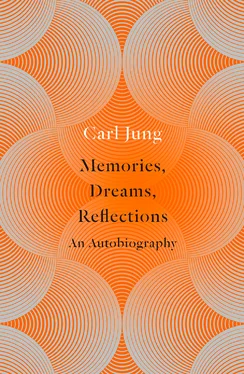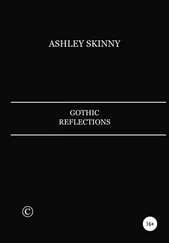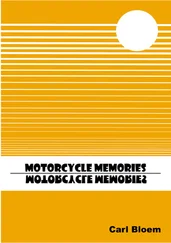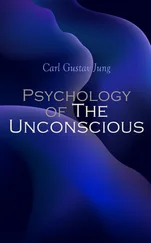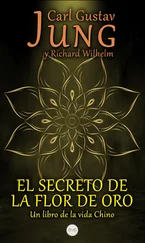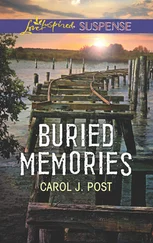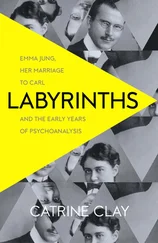In the end the only events in my life worth telling are those when the imperishable world erupted into this transitory one. That is why I speak chiefly of inner experiences, amongst which I include my dreams and visions. These form the prima materia of my scientific work. They were the fiery magma out of which the stone that had to be worked was crystallised.
All other memories of travels, people and my surroundings have paled beside these interior happenings. Many people have participated in the story of our times and written about it; if the reader wants an account of that, let him turn to them or get somebody to tell it to him. Recollection of the outward events of my life has largely faded or disappeared. But my encounters with the “other” reality, my bouts with the unconscious, are indelibly engraved upon my memory. In that realm there has always been wealth in abundance, and everything else has lost importance by comparison.
Similarly, other people are established inalienably in my memories only if their names were entered in the scrolls of my destiny from the beginning, so that encountering them was at the same time a kind of recollection.
Inner experiences also set their seal on the outward events that came my way and assumed importance for me in my youth or later on. I early arrived at the insight that when no answer comes from within to the problems and complexities of life, they ultimately mean very little. Outward circumstances are no substitute for inner experience. Therefore my life has been singularly poor in outward happenings. I cannot tell much about them, for it would strike me as hollow and insubstantial. I can understand myself only in the light of inner happenings. It is these that make up the singularity of my life, and with these my autobiography deals.
When I was six months old, my parents moved from Kesswil on Lake Constance to Laufen, the castle and vicarage above the Falls of the Rhine. This was in 1875.
My memories begin with my second or third year. I recall the vicarage, the garden, the laundry house, the church, the castle, the Falls, the small castle of Wörth, and the sexton’s farm. These are nothing but islands of memory afloat in a sea of vagueness, each by itself, apparently with no connection between them.
One memory comes up which is perhaps the earliest of my life, and is indeed only a rather hazy impression. I am lying in a pram, in the shadow of a tree. It is a fine, warm summer day, the sky blue, the golden sunlight darting through green leaves. The hood of the pram has been left up. I have just awakened to the glorious beauty of the day, and have a sense of indescribable well-being. I see the sun glittering through the leaves and blossoms of the bushes. Everything is wholly wonderful, colourful, and splendid.
Another memory: I am sitting in our dining-room, on the west side of the house, perched in a high chair and spooning up warm milk with bits of broken bread in it. The milk has a pleasant taste and a characteristic smell. This was the first time I became aware of the smell of milk. It was the moment when, so to speak, I became conscious of smelling. This memory, too, goes very far back.
Still another: a lovely summer evening. An aunt said to me, “Now I am going to show you something.” She took me out in front of the house, on the road to Dachsen. On the far horizon the chain of the Alps lay bathed in glowing sunset reds. The Alps could be seen very clearly that evening. “Now look over there” — I can hear her saying to me in Swiss dialect — “the mountains are all red.” For the first time I consciously saw the Alps. Then I was told that the next day the village children would be going on a school outing to the Uetliberg, near Zürich. I wanted so much to go too. To my sorrow, I was informed that children as small as I could not go along, there was nothing to be done about it. From then on the Uetliberg and Zürich became an unattainable land of dreams, near to the glowing, snow-covered mountains.
From a somewhat later period comes another memory. My mother took me to the Thurgau to visit friends, who had a castle on Lake Constance. I could not be dragged away from the water. The waves from the steamer washed up to the shore, the sun glistened on the water, and the sand under the water had been curled into little ridges by the waves. The lake stretched away and away into the distance. This expanse of water was an inconceivable pleasure to me, an incomparable splendour. At that time the idea became fixed in my mind that I must live near a lake; without water, I thought, nobody could live at all.
Still another memory comes up; strangers, bustle, excitement. The maid comes running and exclaims, “The fishermen have found a corpse — came down the Falls — they want to put it in the wash-house!” My father says, “Yes, yes.” I want to see the dead boy at once. My mother holds me back and sternly forbids me to go into the garden. When all the men had left, I quickly stole into the garden to the wash-house. But the door was locked. I went around the house; at the back there was an open drain running down the slope, and I saw blood and water trickling out. I found this extraordinarily interesting. At that time I was not yet four years old.
Yet another image: I am restive, feverish, unable to sleep. My father carries me in his arms, paces up and down, singing his old student songs. I particularly remember one I was especially fond of and which always used to soothe me, “ Alles schweige, jeder neige …” The beginning went something like that. To this day I can remember my father’s voice, singing over me in the stillness of the night.
I was suffering, so my mother told me afterwards, from general eczema. Dim intimations of trouble in my parents’ marriage hovered around me. My illness, in 1878, must have been connected with a temporary separation of my parents. My mother spent several months in a hospital in Basel, and presumably her illness had something to do with the difficulty in the marriage. An aunt of mine, who was a spinster and some twenty years older than my mother, took care of me. I was deeply troubled by my mother’s being away. From then on, I always felt mistrustful when the word “love” was spoken. The feeling I associated with “woman” was for a long time that of innate unreliability. “Father,” on the other hand, meant reliability and — powerlessness. That is the handicap I started off with. Later, these early impressions were revised: I have trusted men friends and been disappointed by them, and I have mistrusted women and was not disappointed.
While my mother was away, our maid, too, looked after me. I still remember her picking me up and laying my head against her shoulder. She had black hair and an olive complexion, and was quite different from my mother. I can see, even now, her hairline, her throat, with its darkly pigmented skin, and her ear. All this seemed to me very strange and yet strangely familiar. It was as though she belonged not to my family but only to me, as though she were connected in some way with other mysterious things I could not understand. This type of girl later became a component of my anima. 1The feeling of strangeness which she conveyed, and yet of having known her always, was a characteristic of that figure which later came to symbolise for me the whole essence of womanhood.
From the period of my parents’ separation I have another memory image: a young, very pretty and charming girl with blue eyes and fair hair is leading me, on a blue autumn day, under golden maple and chestnut trees along the Rhine below the Falls, near Wörth castle. The sun is shining through the foliage, and yellow leaves lie on the ground. This girl later became my mother-in-law. She admired my father. I did not see her again until I was twenty-one years old.
Читать дальше
